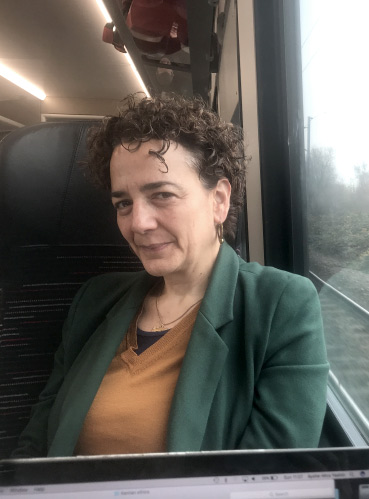Introduction

Anthropology, as a discipline, is not going to escape the pandemic unscathed. Never has the discipline seen such a sudden transformation in the conditions that make our research possible. The kinds of field methods for which we’re famous have become largely impossible. The relevance of the kinds of questions we were in the midst of asking has been cast into doubt. Running like a thread through these quandaries are questions of ethics: given the scale of the crisis, and its impact on those who participate in our research, what’s the point of anthropological work?
Now more than ever, the world needs anthropology; now more than ever, anthropologists, especially those new to the field, need support. But to meet the challenge of the current moment, anthropologists are going to have to think hard about issues that are no less ethical and intellectual than they are practical. It would be better if we found ways to do this thinking together. Towards this end, Wenner-Gren has opened a conversation about the future of anthropological research in the years and months to come.
We have asked participants to focus on these three areas:
1. Methods and Questions.
There are resources circulating on how to do research in a pandemic. Interesting, many of the proposed approaches come from disciplines outside of anthropology. Is there a specifically anthropological approach and suite of methods we might want to explore?
On the one hand, the challenge is logistical. How might anthropologists borrow from, adapt, or completely reconfigure virtual approaches born in different disciplines? What can we learn from our own traditions of virtual research? What will we need to invent anew?
On the other hand, the challenge is conceptual. How will the conditions under which anthropologists are now working change the kinds of questions they are able to ask?
2. Methods and Ethics.
The methods being proposed for fieldwork in a pandemic often involve a heavier commitment of time and energy on the part of research partners and participants than might otherwise have been the case. Are there ethical ways to do research under these conditions? How will we need to rethink not simply how researchers compensate those who participate in their projects, but how they formulate their projects from the start?
3. Ethics and Questions.
The question is not simply how anthropologists should do their research in the age of COVID-19, but whether they should do their research. How is the current moment going to force anthropologists to think more intentionally about the purpose of their work?
In the following weeks, we’ll be publishing brief blog pieces from the scholars who are taking part in this discussion. For the first session, we spoke with sociocultural anthropologists from different countries and traditions of anthropology with deep experience training students. Here’s what they had to say.
Bearing Witness in a Pandemic
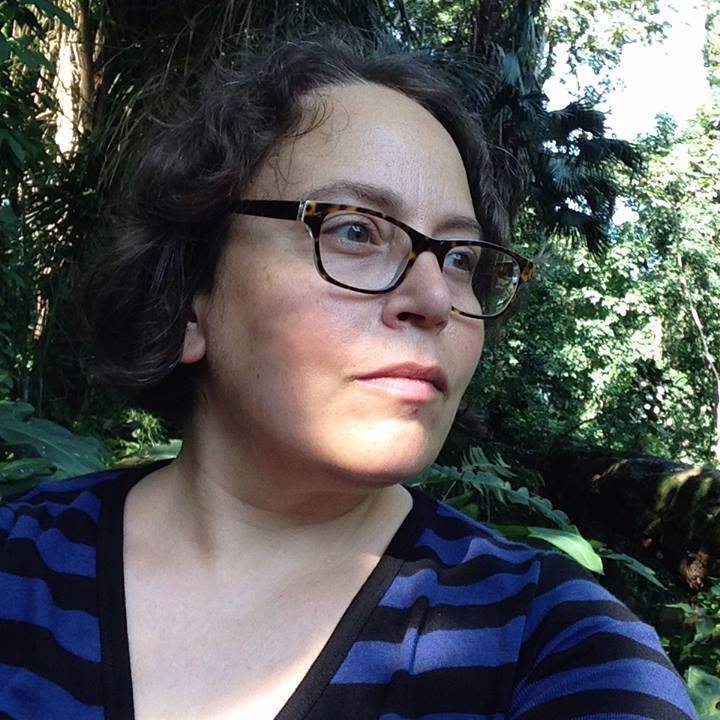
Crises have always generated opportunities, born of necessity, for growth in anthropological methodologies (for example Malinowski’s development of ethnographic field word during WWI). They have also provided spaces for emergent moral ambiguities (or flat-out unethical actions) for the discipline and its practitioners. Consider anthropologists Bruno Beger and Hans Fleischhacker’s work for the Nazis, featured in Christopher Hale’s (2003) book: Himmler’s Crusade: The Nazi Expedition to Find the Origins of the Aryan Race.
Billions of people are, in a very short period of time, engaging in or resisting radical behavioral change. There are massive changes in social structures of education, employment, and health. Our ways of thinking about our lives and our futures have been altered, perhaps permanently. We are in a liminal state with no idea of when or how it will end, nor of what life will look like on the other side. It is an opportunity of a lifetime for anthropologists to observe what is unfolding – to observe the practice and ideologies developed to sustain (or resist) social distancing.
In his introduction to a special issue, Mark W. Hauser (2018) writes:
At its most general level, bearing witness is a valuable way to scrutinize violent encounters, traumatic events, dislocations, and structural inequalities. It can help obtain support from those who might feel distant from those events, diffuse pressure from communities most directly affected, and bring about change. Bearing witness can take the form of communicating traumatic personal experiences or documenting for others the dislocations, institutionalized violence, and kinds of difference-making that often escape social examination. Contributors build on these forms by arguing that bearing witness is part of an archaeological episteme. . . .To what do we bear witness? How do we bear witness? And why do we bear witness?
In my own recent blog (Block 2020), I wrote: “In times when I am helpless and have no other choices, I remind myself that the very least I can do is bear witness. So I do.”
I believe that not only should we be doing this, but we have a responsibility to do this. We have a responsibility to bear witness to how people work to “flatten the curve” or perform the risky tasks required of essential workers, to how people resist social isolation. As I write this there have been more cases on Long Island, where I recently lived, than in the whole of Canada. As someone who just recently stopped working for a health science center linked to a hospital in what is now the epicenter of the pandemic, I bear witness to the risks that my friends and former students are choosing to take or are pressured to take. Health professionals are suddenly finding themselves on the front lines, and then falling ill themselves. I bear witness to all the people falling ill, and their families. I bear witness to the people in congregate living settings, including prisons, nursing homes, and other long-term care settings. I bear witness to my sister Hope in her community-based residence with its shifting staff, and to my cousin Michael, who lived 63 of his 70 years in institutions. To the staff, (many people of color), showing up for work. To the prisoners (largely Black people and people of color) making protective equipment, which they may not have personal access to unless they are digging graves, and coffins, which they might. To the youth whose rites of passage have been disrupted, who have been slammed unwillingly back into the nest, and to the loneliness of those facing this while living alone. I bear witness.
Of course there is a time for witnessing and a time for action, and we definitely in one of those periods now as this is published during protests against police brutality against Black people. I’ve often told students and colleagues that, as a disability studies scholar who has worked, until recently, in clinical education settings, my role is to be like the grass in Malvina Reynold’s song “God Bless the Grass” – find the cracks in the cement and make them bigger. This is a such a moment, where we can be finding those cracks for sustainability, climate justice, disability justice, racial justice, justice for exploited (and now essential) workers – farm workers, front-line health staff, people in food service and delivery. It is a time to push back against those who think Black, disabled or elderly people don’t have lives worth saving. How easily we fall back into the same moral ambiguities: Useless eaters. Lives not worthy of life. Work makes you free. Anthropologists contested such discourses before, so should we now.
Notes from the Great Quarantine: Reflections on Ethnography after COVID-19
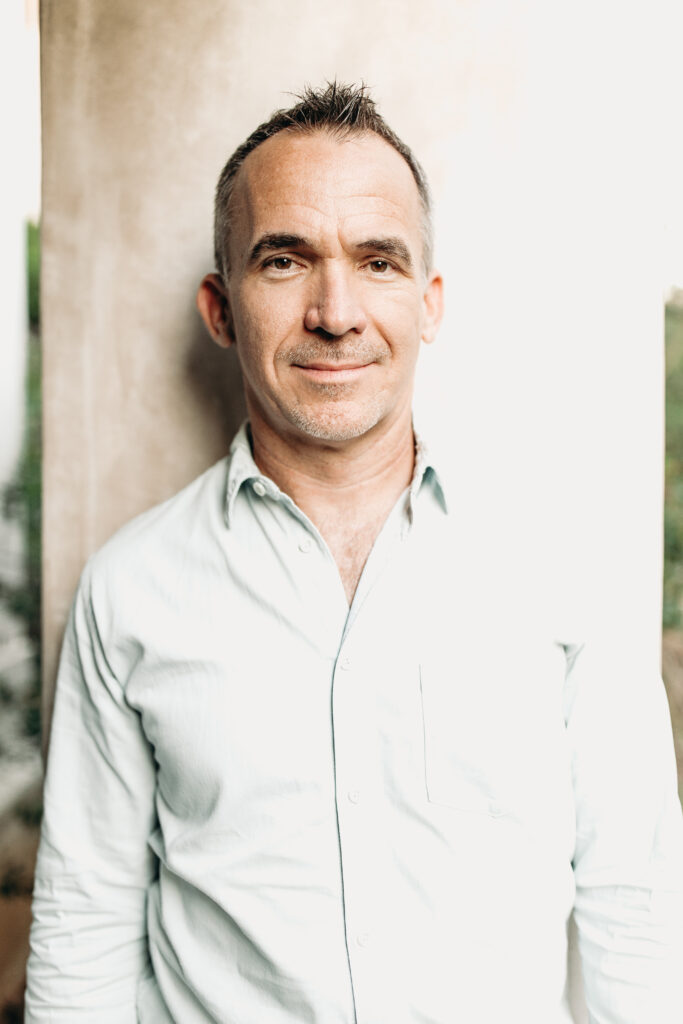
These reflections on ethnography after COVID-19 are deeply shaped by their time: May 2020, in the midst of what I will term the “Great Quarantine.” (There will be other COVID-19 quarantines, but none so unanticipated and extensive.) For you, dear reader, coming to these words months or years later, understand that I write from a time when the disease was new, its modes of transmission, symptoms, and treatments poorly understood. Arriving at anthropology through HIV/AIDS activism in the early 1990s, I recall that bewildering social destruction, so well captured by Paul Monette’s Borrowed Time (Monette 1988). At that point the disease had still recently been termed GRID, Gay-Related Immune Deficiency: as with COVID-19 now, a disease of the “general population” began to follow the fault lines of inequality in terms of who was infected or stigmatized, who lived or died.
Writing from the Great Quarantine, I offer three reflections on ethnography after COVID-19, centering on design, theory, and the digital. By “after COVID-19” I do not mean the virus will no longer exist, but that as with HIV/AIDS, it will become part of the social fabric. See these reflections, then, as messages in a bottle to a near future of my colleagues planning ethnographic work in pandemic times.
Design
In this time that I write, most ethnographic research projects have been suddenly suspended: those preparing for research have postponed or greatly modified their projects. Funders made swift decisions without the benefit of established protocols from peer organizations, universities, or institutional review boards. All this has been distressingly disruptive, particularly for graduate students whose timelines have been thrown into disarray.
However, the challenges of this time do not offer a strong model. The research projects disrupted by the Great Quarantine were designed without knowledge of COVID-19; nor did funding and pedagogical structures account for the pandemic. What will emerge after COVID-19 are methodological, conceptual, ethical, and political tools to respond to pandemic realities. For instance, proposals may include multiple timelines, so that disruption of physical-world participant observation does not mean postponing ethnographic research altogether, but shifting, say, to archival work for the first phase.
It may prove helpful to recall that while the challenge of COVID-19 is unprecedented, ethnographers have contended with disruption before. This has included global events like World War II, which resulted in the “culture at a distance” framework best known from Ruth Benedict’s The Chrysanthemum and the Sword (1946). It has also included more individualized events like the loss of one’s fieldnotes due to arson, as in the case of M. N. Srinivas’s The Remembered Village (1976). These disruptions presented opportunities for innovation—for instance, the “culture at a distance” framework is recognized for helping establish the anthropology of mass media. Ethnography after COVID-19 will differ from what came before, but that difference will not solely take the form of loss.
Theory
As mentioned earlier I came to anthropology through HIV/AIDS activism in the 1990s, and I wish to return to this time of pandemic for further inspiration. It was a time of mobilization, activism, and witnessing—but also a time of literature, art, and theory. Paula Treichler explored “how to have theory in an epidemic” (1999), while in Saint Foucault David Halperin asked “What did gay activists see in Foucault… that his straight-liberal critics missed, and why?” (1995: 27).
This insistence on activism and theory as complementary has value for ethnography after COVID-19. We must not define “relevance” to denigrate analysis, and this extends to the early phases of research design and grant writing. So often the most powerful ethnographic insights are not present in a proposal, or even known while conducting research—they emerge through the work of analysis itself. Something that appears to be research for research’s sake might produce interventions of more lasting relevance than a hundred proposals crafted around a response to the immediacy of the pandemic. If we stick with the horizon of the known, many powerful insights will remain hidden. Ethnography’s contribution will remain both empirical and conceptual, witnessing and theory—indeed, it emerges most powerfully in their imbrication.
The Digital
Data and theory are also imbricated in the crucial horizon of the digital. We must challenge any tendency to frame the digital as a universal solution to the pandemic. Some communities have little or no internet access; digital technologies can involve state or corporate surveillance. Yet there is a vital need to advance digital anthropology after COVID-19. In March and April 2020, the sociologist Deborah Lupton edited “Doing Fieldwork in a Pandemic,” which contains a wealth of helpful ideas, mostly involving online research (2020). It is striking that this extensive document (and others like it) contain few contributions from anthropologists, relying instead on sociology, communications, and media studies. The relative absence of anthropology speaks to the discipline’s relative weakness in advancing digital theories and methods. It is, frankly, shocking to see how many anthropologists still refer to the physical world as the “real world,” denying the reality of the online (and by implication, conflating the real and the physical: see Boellstorff 2016). Anthropologists must move beyond treating the digital as a necessary evil or inauthentic substitute, not least because such prejudice flies in the face of how billions of persons engage with digital socialities. Such dismissals threaten the relevance of anthropology after COVID-19 and deny ethnographers outside anthropology the contributions we have to offer.
Before the Great Quarantine we were already in a world were a few ethnographic projects were primarily online (for argument’s sake, let us say 5%), but where the vast majority of projects (let us say 95%) had some digital component. Most of our interlocutors were already messaging their families, posting on Facebook, using digital technologies for banking, and so on. After COVID-19 we will not see a world where that 5% becomes 99% or even 50%: at the risk of stating the obvious, the offline is here to stay. Yet it is true that a greater share of human sociality will move online, that this will reshape offline socialities, and that anthropology must take this into account. Digital anthropology is a methodological resource but it is also a domain of inquiry like medical anthropology, legal anthropology, or economic anthropology, and this should be recognized in our disciplinary frameworks. We should steer a ground between either valorizing the digital as a magical solution to ethnography in a time of pandemic, or dismissing the digital as an intimidating, unpleasant thing we address as minimally as possible so that we can “get back to the real.”
Ethnography after COVID-19 will thus involve the digital in new ways; anthropology should be at the forefront of these conversations. To take just one example, “social distancing” is actually physical distancing. Going online creates new social intimacies. It is not necessarily a last resort: it is often a familiar space, even a new frontier. It is not always a second-best substitute for the physical, and digital socialities have their own meanings and implications. Anthropologists excel in the study of particularity, and there is a real need for digital ethnographic work that explores the similarities and differences between online games, virtual worlds, social network sites, texting and message, memes and image-based socialities, and so on. Additionally, in many cases digital socialities allow for greater anonymity than in the physical world, and less surveillance as well. Questions of ethics, responsibility to interlocutors, and advocacy shift rather than simply increase or decrease.
Concluding thoughts
Concluding these reflections from the midst of the Great Quarantine seems an impossible task. What I know is that even in the uncertainty, economic collapse, and social trauma that surrounds me, in the pain of illness, the loss of death, and the violence of bigotries old and new, I like many see the value in thinking better futures. Life with COVID-19 will still involve cultural worlds, selfhoods and social relations in the context of environments simultaneously human and natural. Ethnography can play a valuable role in charting these worlds and paths toward their improvement: paths toward health, justice, and care of the earth we share.
Benedict, Ruth. 1946. The Chrysanthemum and the Sword: Patterns of Japanese Culture. New York: Houghton Mifflin Co.
Boellstorff, Tom. J27. 2016. For Whom the Ontology Turns: Theorizing the Digital Real. Current Anthropology 57 (4): 387–407. doi:10.1086/687362.
Halperin, David M. 1995. Saint Foucault: Towards a Gay Hagiography. New York: Oxford University Press.
Lupton, Deborah, editor. 2020. “Doing Fieldwork in a Pandemic” (crowd-sourced document). Available here.
Monette, Paul. 1988. Borrowed Time: An AIDS Memoir. San Diego: Harcourt Brace Jovanovich.
Srinivas, M. N. 1976. The Remembered Village. Berkeley: University of California Press.
Treichler, Paula A. 1999. How to Have Theory in an Epidemic: Cultural Chronicles of AIDS. Durham: Duke University Press.
Doing Anthropology in the Time of COVID: Questions, Methods, and Ethics
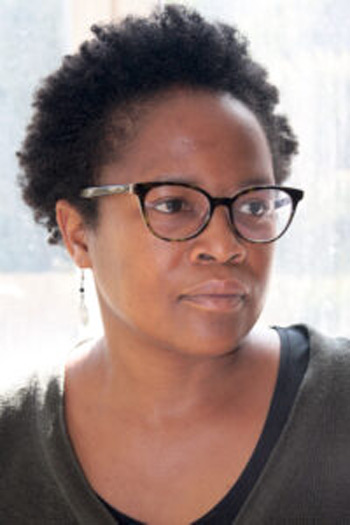
For students and academics in anthropology departments in South Africa, as we watch the pandemic unfold before our eyes, there is a sense of urgency in how to document this whilst acknowledging the entrenched injustices that COVID-19 lays bare and the new inequalities the situation reveals. The strict measures that have been enforced during lockdown in South Africa have disproportionately affected the poor and marginalised and are increasing the numbers of people who are vulnerable. Initiatives such as the Corona Times hosted by the University of Cape Town and the student project co-ordinated by by Lenore Manderson are some examples of the first attempts at documenting and making sense of the impact of COVID 19 by anthropologists. In South Africa, anthropology has a history of activism and has, in the past, spoken out about injustices especially racial, health, gender inequalities. The current generation of scholars is being faced with an unprecedented moment as well as overwhelming uncertainty and with the enormous task of adapting – adapting to teaching, conducting research, thinking and communicating digitally. For some this has been easier than for others.
A number of South African based scholars[3] have reflected on the era of the HIV/AIDS pandemic in South Africa to compare and understand responses at the individual, community and national level. In terms of research, what I find striking is that despite the growing popularity of medical anthropology as a university course and the increasing number of African students selecting this course, very few student dissertations have, over the last two decades, focused on HIV. Indeed, while the majority of students conduct research in communities or with interlocutors they are familiar with, there was and continues to be a reluctance to work on HIV/AIDS. This is in part due to the stigma that continues to surround the disease and the care (and respect) that local anthropologists and students want to display in not exposing anyone to any harm or to making death, disease and hardship the only worthy topic of anthropological research in Africa.
I think the care and caution that we have observed around HIV/AIDS will be important with regard to the questions we ask and methods we use to do research in the time of the coronavirus. This will depend on responses to COVID-19 and the stories that emerge about its spread – who gets infected and how they become infected. At the moment, vulnerability to infection is not, at least in the popular imaginary, about socio-economic status, race, and gender but rather about compromised immune systems, which highlight issues of age and of health (nutrition, comorbidities, sanitation, housing- all of which are major issues for the majority of South Africa’s population and are differently experienced in relation to race and class).
With regard to how to do research, the idea of knowledge co-production is not new in anthropology and many scholars have tried to make it central to the research they do, but it remains an idea that many just pay lip service to. Until there is a vaccine developed, we have to rely on working with people who are already in the field as interlocutors as well as co-researchers and/or as research assistants.
It is impossible to do ethnographic research without the help of others. We often hear interlocutors complain that researchers (not only anthropologists) take from them in order to build their careers but never give anything back in return. This is something we need to address more seriously and this is a good time, more than any other, to begin to do this. Starting with funding proposals, we can ask direct and concrete questions about the unfolding of the project and the afterlife of the research.
What are researchers’ thoughts on a variety of issues relating to power dynamics in the field, inequality, and knowledge production? How do researchers imagine their presence in the field and their relationship to others? Will they practice an ethics of care? How and why? What do they want to communicate about anthropology to the people around them in the field? Such questions are especially important for research in contexts where there are stark inequalities, especially between researchers and their interlocutors. And as I was reminded recently, our attempts to engage digitally can exasperate those inequalities.
Perhaps we need to begin by asking the basic questions. Why do we do research? Should we be doing research at all? Where do we conduct research (and why)? These are important questions that we need to consider in relation to our environmental and planetary situation, and with regard to how anthropology is represented in the general public.
For some, anthropology is an attractive discipline because it allows one to travel, learn a new language, and document the diversity of lives lived. For many, this exotic lure has largely disappeared. Unfortunately, this has not coincided with a change in how anthropologists are perceived. In many African countries, anthropology and anthropologists are treated with suspicion, jokingly tolerated, or regarded with disdain. In an era of calls for the decolonisation of scholarship, anthropologists are seen as the last bastion of a colonial legacy. It is hard to argue against this image when the majority of anthropologists that are visible often come from outside the country, often from a different continent, and are there to observe.
The question that is often asked of anthropologists (especially foreign anthropologists) is: How can you help us? The answer often is: I can’t. While this is true and is what students are taught – to not make false promises – it takes us back to an observation I encounter a lot, even among colleagues in South Africa from other disciplines, which is that anthropology is about writing stories that only matter to other anthropologists. This is obviously a much bigger issue than I can address here, which we can approach from different perspectives. The point I want to make is that, from where I sit on the African continent, there is a need to advocate for the value of anthropology and to practice our craft with care.
- Corona Times
- Medical Anthropology at UCL
- Please note that anthropology in South Africa is very differently perceived, practiced and positioned as compared to other countries on the continent. Unlike in other African countries, anthropology is a course that still exists independently although many of the departments are no longer free standing and have been merged with other disciplines as, for example, anthropology and sociology departments, or anthropology and development studies departments. Most colleagues on the continent are not in such a privileged position. To survive they increasingly have to turn to teaching qualitative research methods and taking on development consultancy work in order to raise money to retain promising students.
Preliminary Thoughts on Ethics, Purpose, and Anthropology Beyond Covid-19

One of the things I’ve noticed with my graduate students, that is the ones who are going to “the field” or are supposed to start their ethnographic work right now, is that eventually they will be able to go back to do research in the way they were taught. But for now, what they are doing is not necessarily going to the technology. They’re going to the archives. I was expecting them to start thinking, “I’m going to interview people on Zoom or analyze social media.” But instead they are focusing on gaining historical insight into spaces or the communities where they will be conducting fieldwork eventually. They are identifying primary sources that may have been digitized or that they may have access to. Among graduate students about to start fieldwork, there is still that sense of “it’s only a matter of time before we’re able to do that, so we just need to switch things around and figure things out in a different order.”
I’m actually very optimistic and reassured by this reengagement with grounded research. There is something to be learned from anthropologists who are ethnohistorians, anthropologists who have taught us how we can engage with archives. I appreciate this turn on the students’ part. Because sometimes graduate students tend to be drawn by unencumbered theory. They associate this with being a “true scholar” or a sophisticated thinker, as if this were incompatible with having a historical and political economic grounding. One thing that may come out of this critical engagement with the archives is that ethically, not only methodologically, but also ethically, these young ethnographers can reconnect with the ground.
Among Latinx and African American anthropologists, and certainly among ethnographers in Latin America and the Caribbean, there has been a strong tradition of community-academy collaborations that require such connections to the ground. Although many of the same issues that Covid-19 has exacerbated existed before the pandemic, it may be interesting to think about how the current era highlights the difference between things that were interesting versus things that are relevant in the context of anthropological work. This is a tough conversation to have. Oftentimes we just want to do things we’re interested in. And those may or may not be relevant. I think this is an ethical issue that will become increasingly central for anthropology at all levels, from the work that gets funded to the work that gets published. And of course, the ability to choose research based on individual interest, rather than collective relevance, is an element of privilege — of geopolitical, institutional, racial, gendered, and certainly socioeconomic privilege. Despite the occasional exception, as anthropologists we are frequently situated in positions of privilege. That privilege emerges very forcefully when we insist that we should be able to choose whatever we want to do because we want to do it and it’s of personal interest to us. I’ve seen this throughout my twenty years in academic institutions. The current era may be a good moment to rethink how we orient ourselves and our research, to discover what is really needed, rather than being self-indulgent, and to focus on what is relevant. I am not necessarily suggesting that relevance is exclusively determined by the choice of research topic. But relevance cannot only be determined by random individual interest. Its assessment requires a greater social orientation and outlook.
Ethics, Methods, and Questions in the Age of Covid-19
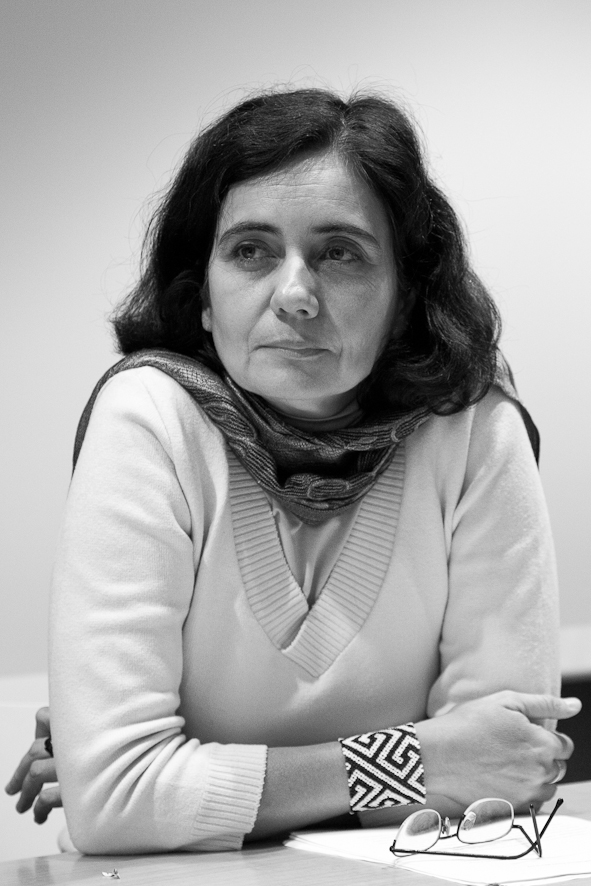
I would like to talk about these issues from the standpoint of a Brazilian teacher and researcher of Indigenous Amazonian peoples, who also supervises students working in the same ethnographic area.
Methods and Questions
I think it will be impossible to adapt virtual inquiries and research to the work with Indigenous peoples. First, because most of them do not have internet resources at their villages. When they do, elders won’t feel comfortable with these methods, and elders are usually our main collaborators. We could ask younger people to record myths and histories with them and send them to us via internet, in case they have it. But then we might lose the whole context of production.
What we are planning to do at the moment is to wait until researchers might be able to enter the Indigenous lands with all health precautions taken. If it would not be possible within a year, then we will have to choose the possibilities cited above: recordings and even translations by the internet. But what about the “observant participation” that characterizes our work and that we all know changes our understanding of oral narratives?
On conceptual questions, I think the pandemic will be the center of ours and Indigenous interests should they get contaminated and survive. But I also feel that if they do, they will try to get back to normal life as soon as possible and then we will have to face traditional issues, like social organization, cosmology, etc. My experience with the Wari’ takes me to this direction.
Methods and Ethics
The main ethical problem we face in Brazil involving Indigenous peoples is much wider than the pandemic. The Brazilian government supports the invasion of indigenous territory, illegal mining, lumbering, and land expropriation. At the moment, all of us anthropologists are concentrating on publicizing what is happening and trying to work against it, via legal ways through the Federal Public Ministery (MPF). We are all in contact with the people we work with through phone calls, Whatsapp, and Facebook (their favorite platforms) to talk about the virus and the epidemics. We are asking them to stay in the villages, but as their subsistence now involves manufactured goods, they do not have enough food from their gardens and forests to sustain themselves. They need to buy it. For this reason, we are sending messages to scholars from all over the world asking for financial support.
In fact, we are all so concerned about the survival of the people we work with that we did not have time to think about research. Today, on the 20th of May, people from forty-four different Indigenous groups are infected with the virus, with 103 deaths. They all have very poor access to medical care, and many are dying at home. In Manaus, the Brazilian city with the largest Indigenous population, the hospitals and cemeteries are overloaded, as in many other Brazilian cities, and people are digging communal burial digs to dispose of the corpses. We are expecting a wave of extermination only comparable to what happened centuries ago with the epidemics of smallpox, measles, and flu brought by the European invaders.
Indigenous people’s reaction to the pandemic is linked to their way of life and their conception of what kinship means. Relatives, by definition, have to care to each other and can not leave sick loved ones alone. They should be close to them and take care of them, which always involves feeding and touching the body. From that point of view the idea of “social distancing” can not be applied to individuals, although families and small groups can spend time apart to escape from the illness. They have done this historically with more or less success.
We are now totally focused on the crisis and do not have any clear ideas about future research.
Ethics and Questions
I believe I already touched these issues above. One thing that occurs to me now is that, just as I myself can count on my research materials collected through the last thirty years, many anthropologists can also do the same. Students can also try to gain access to these materials, which are sometimes available in museums and other institutions. They can also do historical and archival research. If so, we will be back to studying subjects that are mainly “traditional” and, of course, to an emphasis on historical issues, on cultural change, on contact etc. But all that will come with a drastic loss of first hand experience.
As anthropologists, now more than ever, we have an obligation to make our work available to a larger audience, so that people can turn their eyes to Indigenous life ways, philosophies, and also survival problems. In 2018, I published a literary essay on the life of my Indigenous father, Paletó (Paletó e eu, editora Todavia, São Paulo). I have come to realize that talking to a wider public is one of the most important political acts we can do. We must make people admire Indigenous life, or we won’t be able to keep them safe. I am also writing for newspapers and literary magazines about Indigenous peoples, not just denouncing what is happening in the political arena, but also talking about the beauty of their thinking and of their lives. I’ve been getting a wonderful feedback for this work.
Update: For more on this topic we encourage you to check out Gokce Gunel, Saiba Varma, and Chika Watanabe’s recently published, “A Manifesto for Patchwork Anthropology“.
